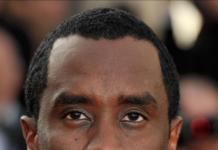By Monée Fields-White/Originally published by thegrio
Actor John Amos, who gained widespread recognition in the 1970s when he portrayed the patriarch on the classic sitcom “Good Times,” died Aug. 21 of natural causes at 84.
“It is with heartfelt sadness that I share with you that my father has transitioned,” said his son Kelly Christopher Amos in a statement, according to Variety. “He was a man with the kindest heart and a heart of gold … and he was loved the world over. Many fans consider him their TV father. He lived a good life. His legacy will live on in his outstanding works in television and film as an actor. He was my dad, my best friend, and my hero.”
John Amos once said that his dream was to play professional football. The path to the pros was rocky and riddled with injuries. Yet the path veered off into a prolific acting career that spanned over 50 years. Amos’ film and television credits range from “The Mary Tyler Moore Show” in 1970 to “Uncut Gems” in 2019, and beyond. He became a household name in the mid-1970s when he was cast to play the hardworking father James Evans Sr. on Norman Lear’s family-based comedy “Good Times.”
In his later years, Amos received many honors, including three TV Land Awards marking his legacy as part of the casts of “The Mary Tyler Moore Show,” “Good Times,” and the acclaimed miniseries “Roots.” In 2020, the Garden State native was inducted into the New Jersey Hall of Fame.
“John had a lot of talents, and this was not just in football,” Willie Lanier, a former Kansas City Chiefs teammate, said in an interview. “John was a full human being, and he had all types of skills and it showed as his life unfolded.”
Football dreams
Amos was born in Newark, New Jersey, the son of Annabelle and John A. Amos Sr., who was a mechanic. He graduated from East Orange High School. Amos went on to pursue his goal of becoming a professional football player, first attending Long Beach City College, where he earned a sports scholarship. He eventually transferred to Colorado State University, where he played for the Rams and earned a degree in sociology. Football wasn’t his only pursuit; he was also a Golden Gloves boxing champion.
In 1964, he signed with the Denver Broncos as a free agent. His time with the team was cut short due to a hamstring injury, and he was released on the second day of training camp. He went on to play for teams in other leagues, including the United Football League’s Canton Bulldogs and Joliet Explorers, as well as the Continental Football League’s Norfolk Neptunes and Wheeling Ironmen. With each team, he fell short of wide success.
Amos said in an interview: “I got cut so many times that I used to joke that I had a gold-plated travel card from Greyhound.”
In 1967, Amos signed as a free agent with the Kansas City Chiefs. That didn’t last either, as he was released from the team. Yet this time, the head coach, Hank Stram, offered some advice that would change the trajectory of Amos’ career and dreams. Stram told him: “You’re not a football player, you’re a young man who happens to be playing football.”
Stram also encouraged Amos to follow his passion for writing, advice Amos took to heart.
Hollywood stardom
Amos went on to find his footing, in writing and acting. He landed his first major role in 1970, when he was cast to play Gordy Howard, the weatherman on “The Mary Tyler Moore Show.” He then appeared on the sitcom “Maude” as the husband of Florida Evans (played by the late Esther Rolle). Rolle’s character led to the spin-off “Good Times.” In his three seasons on the show, Amos was hailed for his characterization of a Black father. His realistic portrayal set the tone for future shows on Black family life, particularly fatherhood.
At the time, Amos openly expressed his view of wanting to showcase a positive image of a working-class Black family facing a plethora of hurdles living in inner-city Chicago’s public housing projects. With that, he pushed for more authenticity in the scripts, and to less of what he saw as low-brow comedy. He also noted that there were no Black writers on the show, and those who were on the writing staff didn’t understand the nuances of Black life.
In a 2017 interview with SiriusXM’s “Sway in the Morning,” Amos said he took issue with some of the attitudes depicted in the scripts and told the writers: “That just doesn’t happen in the community. We don’t think that way. We don’t act that way. We don’t let our children do that.”
By the end of the third season of “Good Times,” the public clash led to Amos’ firing. In 2019, Amos and Lear reunited for a one-night TV special airing of “Live in Front of a Studio Audience: ‘All in the Family’ and ‘Good Times.’” A star-studded cast — including Viola Davis, Andre Braugher, and Jay Pharoah — portrayed the Evans family. Amos returned as a different character, assuming the role of shady Chicago politician Fred Davis.
Amos also noted in an interview with Entertainment Weekly that year that he and Lear had resolved their creative differences many years ago. “I was very fortunate to be alive to do another episode of ‘Good Times,’” he said. “Oddly enough, I was playing opposite the character that I had played on the original show. It was such a wonderful reunion with Norman and his creative staff.”
Following “Good Times,” Amos appeared in a number of other popular series over the next few decades. One of his most noted roles was the portrayal of the older Kunta Kinte in the miniseries “Roots.” He earned an Emmy Award nomination in 1977 for outstanding lead actor for a single appearance in a drama or comedy series.
In 1996, Amos was nominated for an NAACP Image Award for outstanding supporting actor in a comedy series for his role in the sitcom “In the House.” He also guest-starred on television shows including “The District,” “Hunter,” “The Fresh Prince of Bel-Air,” and “Two and a Half Men.”
Amos also starred in several major motion pictures. Among them are “The World’s Greatest Athlete” (1973), “Let’s Do It Again” (1975), “Die Hard 2” (1990), “Ricochet” (1991), “Dr. Dolittle 3” (2006), “Coming to America” (1988), and the sequel, “Coming 2 America” (2021).
He earned critical acclaim in 1996 as a playwright following the debut of his one-man play, “Halley’s Comet.” Amos enjoyed a brief musical career after releasing an album of original country songs in 2007 titled “We Were Hippies.” And in 2017, he became a published children’s author with the illustrated book, “A World Without Color.”
“When I started in this industry, I was a writer,” Amos said in a 2019 interview with Entertainment Weekly. “I feel that I’ve finally come full circle now.”
As he looked to the future, he told Entertainment Weekly, “I have no plans to retire, but I’ll be pulling back a little bit just to enjoy my children and my grandchildren, and to enjoy life.”
Amos’ survivors include his two children, son Kelly and daughter Shannon, whom he shared with his first wife, Noel Mickelson. They were married from 1965 to 1975. He was married to actress Lillian Lehman from 1978 to 1979.
In 2023 and 2024, the Amos children were caught in a bitter battle over their father’s care, accusing each other of elder abuse.
“Whatever we’re going through is our business, not the business of the public,” Amos said at the time.


































